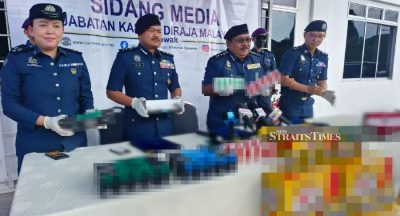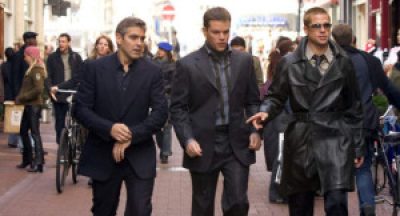Counterfeit products target of website
Mississippi Attorney General Jim Hood is hoping a new website dedicated to fighting counterfeit merchandise will help the state chip away at an unlawful, billion-dollar industry.
The Mississippi Intellectual Property Crime Center was launched Monday. Hood says it’s the first statewide website where counterfeit sales activity can be reported.
People can report where potential counterfeit clothing, CDs, DVDs or other bogus items are being sold, view pictures of counterfeit goods and look at the state’s laws concerning intellectual-property theft and links to other organizations that combat knock-off items.
“This is a first-of-its-kind website,” Hood said while seated at a table strewn with bogus golf shirts, ball caps, handbags and a counterfeit iPod seized by state officials. “Instead of calling in, (people) can fill out a form online if they see a product they think is counterfeit.”
The form asks for the street address, city and zip code of counterfeit activity. Those who fill it out have the option to remain anonymous.
Hood says manufacturers are losing $250 billion in sales nationwide each year through the sale of counterfeits. He did not have state-specific figures.And the goods can pose great safety hazards, he said, noting a woman in Tupelo who suffered a damaged retina after buying bogus contact lenses.U.S. Immigration and Customs Enforcement reported 19,959 seizures of counterfeit goods in 2010 with a value of $188.1 million – a 34 percent increase. Authentic items would have cost $1.4 billion.While law enforcement is making inroads, technology has made it easier for counterfeiters to produce knock-off goods “to near perfection,” says Joe LaRocca, a senior adviser to the National Retail Federation, a trade group for retailers.Consumers’ emphasis on low-cost items in a still-recovering economy opens up a new path for counterfeiters, too, he said.“It impacts any sector of retail – from sunglasses and handbags to the labeling of food,” LaRocca said.Counterfeit goods tend to be sold by street vendors and available at discount and secondhand stores, but also occasionally work their way into a retail store’s supply, he said.People who make and sell counterfeit goods often have backgrounds in drugs, gangs or other illegal activities and sell the merchandise to fund larger-scale criminal operations, officials say.“They’re folks who have chosen this lifestyle. They think it’s safer,” says Richie McCluskey, chief investigator with the state’s Consumer Protection Division.Hood says the website aims to streamline the reporting process and help people identify a counterfeit item.
Being able to differentiate between what’s legitimate and what isn’t is difficult, but there are some tell-tale signs people can spot, LaRocca said.First and foremost is the price. If it’s marked down significantly from the suggested retail price, that could mean it’s counterfeit, he said.It’s also common for bogus goods, particularly DVDs, to be on sale well before a previously announced national release date, he said.Counterfeit clothing often has no labeling or generic labeling mentioning only the price, LaRocca said.Mississippi’s intellectual-property-theft laws carry penalties of three to five years in prison and a fine of up to $10,000.
Related Posts
Customs seizes RM3.15m in cigarettes and alcohol disguised as frozen shrimp
KUCHING: The Customs Department thwarted an attempt to smuggle cigarettes and...
Thirteen people arrested by authorities in Victoria, WA in operation targeting illegal tobacco trade
Police have arrested 13 people — some with alleged links to a Middle Eastern...
Legal hassles impede auction of seized contraband Seized smuggled goods worth crores expire pending due clearances
Authorities in the country are facing a unique problem of storing and disposing...
Food fraud: Record seizures of fake food and drink in INTERPOL-Europol operation
Thousands of tonnes of fake and sub-standard food and drink have been seized in...





